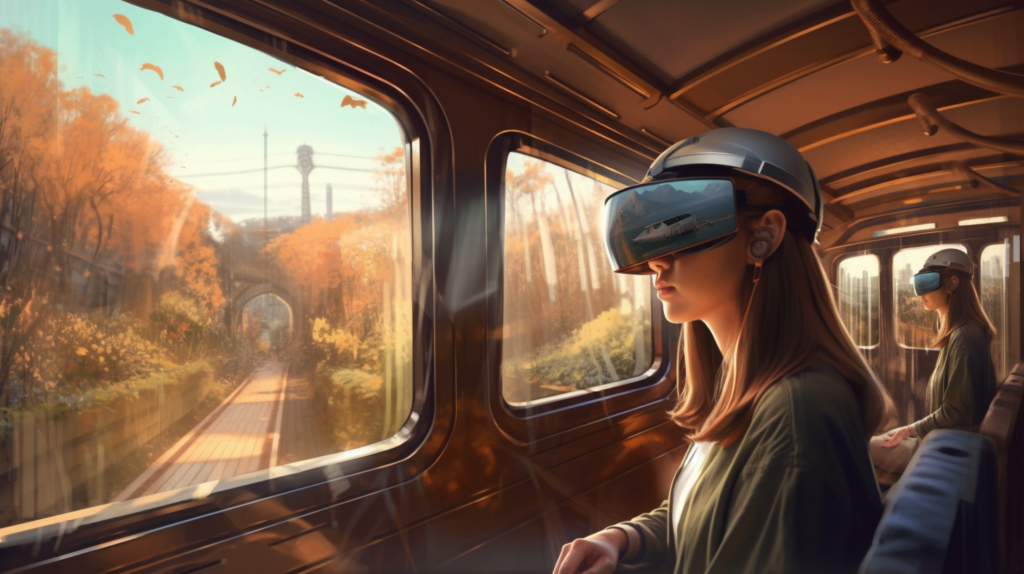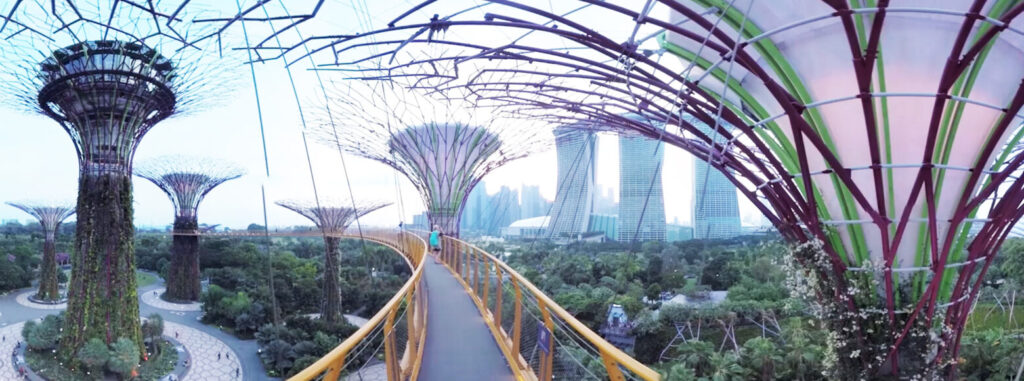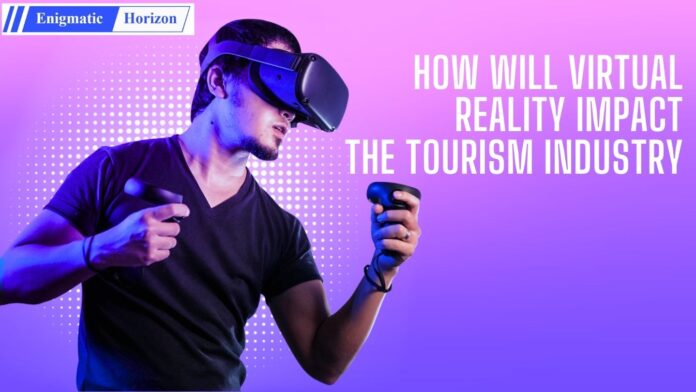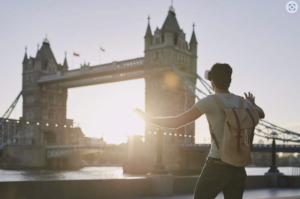Priyanka Mathur
Content is a valuable source of information in any industry. Virtual Reality in India is scaling new heights day by day. Tourism in India is also eyeing a weighty transformation to boost their business post-pandemic. The simulation makes the users feel the sound, sensations, and visuals of any place without being present there physically.
Virtual Reality is one of the clever technologies that have induced excitement among organizations by revamping their PR and branding. Machine learning algorithms have enhanced user experience by analyzing massive data and creating lifelike mockups simulating real-world environments. Facebook, Oculus, Google, Nokia, HTC, Cyber Group, Samsung, and EON Reality are committed to enhancing the hardware and software of VR in the tourism industry.
VR in tourism marketing
The creativity of virtual reality can play a significant role in marketing. VR-based marketing strategies in the tourism industry extend the horizon of realistic explanations of things that engage the customers. They will get precise messages and make the business connect with their customers better. Traditional paper brochure-like material doesn’t bring the same level of engagement as the VR. Tourism companies have taken their entire booking process further from computer and mouse.
Change in destination marketing
The use of Virtual Reality has brought about a revolution in the field of destination marketing. It creates an immersive experience. Traditional marketing involves showing images of the destination, whereas these days, VR is used to create engagement with potential travelers. From the surroundings to the hotel ambiance and rooms, VR showcases a unique dimension of the destination. Mostly hotel tours are monoscopic, but they still give you a great idea of what the hotel is like. These media types combine still images, Virtual Reality, videos, audio, and multimedia applications to provide users with authentic experiences that otherwise they may miss through images alone.

“Seeing is believing.” It becomes easy for users or travelers to decide after exploring the facilities in the 360VR videos of getaways or locations. Travelers get familiar with the area and their culture. It gives them the confidence to book. Thus, virtual tours can be a handy marketing tool for tourism and hospitality companies. The International tourism circuit uses VR rigorously, and India has also embraced VR technology for tourism.
Create 360-degree virtual tours
Imagine being able to visit the Taj Mahal in India or stroll along the beaches of Bali without leaving your living room! VR has the power to transport us to any corner of the globe. Tourists can interact with their surroundings, engage with local cultures, and even participate in thrilling activities within a virtual space! It will craft a wonderful experience for seniors who love to visit new locations but have restricted mobility.
Travel agencies use virtual reality headsets to provide an immersive in-store experience to customers.

Plan your dream vacations with VR
Artificial intelligence (AI) and its easily accessible applications are helping solo travelers. If you want to create an itinerary for a Self-Guided Tour, an AI-powered travel generator can tailor tours based on your interests and create them within seconds. AI algorithm analyzes your dining and lodging preferences by exploring videos you watch and suggesting a travel plan. You can edit or recreate it.
Virtual Reality Tourism: Impact of VR on Tourism Industry
- 360VR videos are required for virtual tours, creating job opportunities for VR and AR-skilled individuals. North America projects to have the highest number of jobs related to AR and VR in the travel and tourism industry from 2022 to 2027, making it a global leader.
- Virtual tours are a cost-effective solution for travel enthusiasts who find it difficult to visit some destinations due to budget constraints.
- The high-resolution exploration of a hotel scene offers a “real world” experience of their property, rooms, and facilities. These businesses are more likely to be remembered and given priority while booking.
- VR tours create a unique and memorable experience, creating more engagement for the brand.
- Travel and hospitality companies can help in reducing physical damage to the monuments.

Challenges or Limitations of VR
- Privacy Breach- Augmented Reality and Virtual Reality creates a web universe that eye on user’s activity to a great extent. There is fear of sacrificing personal information, including biometric data. It can be devastating if this information falls in wrong hands.
- Lesser economic benefits- Virtual tours reduce the physical visit to a place, less money spend may cut the revenue of tour operating companies.
- Lack of human interaction- Lack of social interaction may be dissatisfying.
- Technology anxiety- VR has limited reach, to only where high speed internet is available. Live streaming and updated information is sometimes not possible. Moreover, some people may find it hard to embrace new technology.
- Health concerns- This is the most important and biggest concern. The immersive experience provided by VR simulation is addictive. Its extensive use may lead to lack of focus, dizziness, frail memory, discomfort, and muscle stress. Even though you may try to limit your use, it might be challenging due to the addiction.

The Future of Travel and Statics of VR Tourism
The growth potential of the virtual reality tourism industry in India is immense. Research support Augmented Reality will grow globally over the years. As more travelers seek unique and immersive experiences, undoubtedly VR technology will become a game-changer! Despite it, it is important to remember that VR tourism can never replace the feeling of being and experiencing a location or destination in person!
Read about the impact of virtual reality in gaming and how it is changing the video game industry as well!

